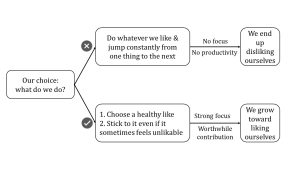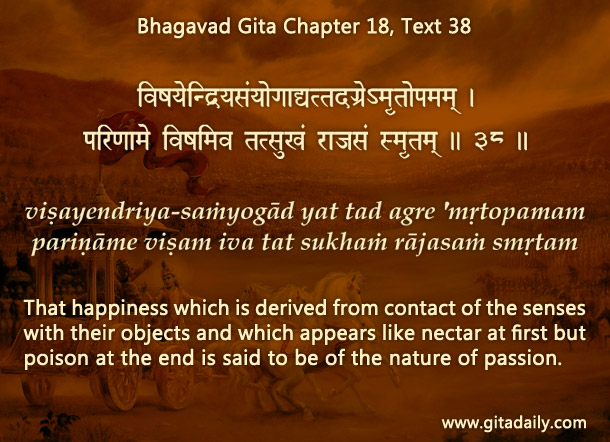 Suppose we are studying for an important exam the next day. Suppose further that success in this exam can launch our career in a field that is our calling. While studying, we feel like checking the latest news. While glancing through the news, we feel like looking at our social media. Minutes turn into hours — and we are left with no time for exam preparation. We do poorly in the exam and miss the chance of a lifetime. As we beat ourselves up over our stupidity, we become prone to self-loathing.
Suppose we are studying for an important exam the next day. Suppose further that success in this exam can launch our career in a field that is our calling. While studying, we feel like checking the latest news. While glancing through the news, we feel like looking at our social media. Minutes turn into hours — and we are left with no time for exam preparation. We do poorly in the exam and miss the chance of a lifetime. As we beat ourselves up over our stupidity, we become prone to self-loathing.
Such experiences underscore an ironic truth: if we keep doing whatever we like, we will end up in a place where we dislike ourselves. The Bhagavad-gita (18.38) puts it poetically: things that taste like nectar initially (e.g. our doing whatever we like) end up tasting like poison eventually (e.g. we become dislikable).
Does this truth imply that we have to always do the things we don’t like? Certainly not; we do need to distinguish between doing what we like and doing whatever we like. Our likes tend to change, given that our mind is fickle; if we keep jumping from one thing to another based on our mind’s ever-changing likes, we will never be able to do anything worthwhile in any area of our life, even an area that we overall like.
What, then, can we do? First, select those of our healthy likes that we can pursue to do something worthwhile; then stick to pursuing those likes even if they stop seeming likable. Only when we thus persist through our ambivalent emotions can we achieve something meaningful — and through that process become positively transformed.
One-sentence summary:
If we keep doing whatever we like, we end up disliking ourselves — select a worthy like and stick to it so that we can do something worthwhile and thereby become someone we like.
Think it over:
- How might we end up disliking ourselves?
- What is the difference between what we like and whatever we like?
- How can we become someone we like?
***
18.38: That happiness which is derived from contact of the senses with their objects and which appears like nectar at first but poison at the end is said to be of the nature of passion.
To know more about this verse, please click on the image


Thank you very much Prabhuji, very inspiring. This is ShaktimanDas from FLL.
Nice to see you here, Shaktiman P. Hope you are well.
MIND is an imperceptible object
Hare krishna Prabhu,
Thanks for the diagrams which makes the article interesting and easy to understand
Really appreciate your efforts on constant improvement of the look and feel of articles.
Thanks for your specific appreciation, Vijay P. Yes, I hope to have diagrams regularly with each article.